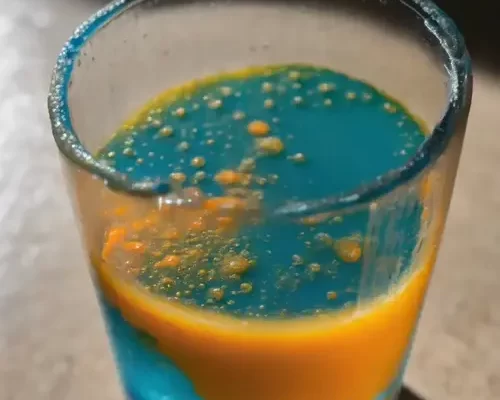Mold, a variety of fungus, has the ability to grow in both indoor and outdoor settings. It flourishes in damp conditions, frequently manifesting as a fuzzy substance on different surfaces. Although certain molds are innocuous, others have the capability to generate mycotoxins, which can pose potential health hazards if ingested or breathed in.
Consuming substances that have been contaminated with mold has the potential to cause harm, depending on the specific type of mold and the level of toxins present. The extent of health consequences can greatly differ from person to person, as it is influenced by factors such as the quantity consumed, length of exposure, and individual vulnerability.
Here are some potential risks associated with drinking mold-contaminated substances:
- Allergic Reactions: Individuals who are sensitive to or have pre-existing allergies or asthma may experience allergic reactions such as nasal congestion, sneezing, coughing, wheezing, and skin irritations when exposed to mold.
- Gastrointestinal Issues: Ingesting mold-contaminated drinks can lead to gastrointestinal problems such as nausea, vomiting, diarrhea, abdominal pain, and gastrointestinal bleeding. These symptoms may be more severe in individuals with weakened immune systems or underlying gastrointestinal conditions.
- Respiratory Problems: Mycotoxins released by certain molds can cause respiratory issues when inhaled or ingested. They can trigger or worsen respiratory conditions like asthma, bronchitis, or chronic obstructive pulmonary disease (COPD). Severe exposure to mold spores may even result in fungal lung infections in rare cases.
- Neurological Effects: Certain molds produce mycotoxins that can affect the central nervous system. Prolonged exposure to high levels of these toxins can lead to neurological symptoms such as headaches, difficulty concentrating, confusion, memory loss, dizziness, and even seizures.
It is important to note that the presence of mold or mold-contaminated substances does not automatically mean immediate harmful effects. The severity of the health risks depends on the type and amount of mold present, individual susceptibility, and the duration and intensity of exposure.
If you suspect you have consumed mold-contaminated food or drink, it is recommended to seek medical attention, especially if you experience severe symptoms or have a weakened immune system. A healthcare professional can assess your situation and provide appropriate guidance for further treatment or prevention.
Prevention is key in avoiding the potential harms of consuming mold. Here are some steps to reduce the risk of mold-related health problems:
- Store food properly: Keep perishable food refrigerated and discard any items that show signs of mold growth.
- Maintain good indoor hygiene: Clean mold-prone areas regularly, such as bathrooms, kitchens, and basements. Ensure proper ventilation and manage moisture levels in your home.
- Inspect and maintain your plumbing: Regularly check for water leaks or signs of mold growth in water-related areas like sinks, pipes, or appliances.
- Properly dispose of moldy items: If you discover mold on food, beverages, or other items, it is safest to discard them in sealed bags to prevent further contamination.

